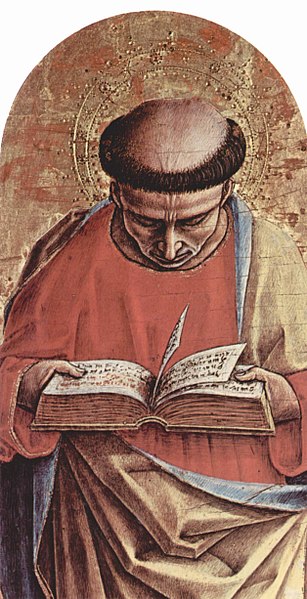Tonsure is the practice of cutting or shaving some or all of the hair on the scalp as a sign of religious devotion or humility. The term originates from the Latin word tonsura and referred to a specific practice in medieval Catholicism, abandoned by papal order in 1972. Tonsure can also refer to the secular practice of shaving all or part of the scalp to show support or sympathy, or to designate mourning. Current usage more generally refers to cutting or shaving for monks, devotees, or mystics of any religion as a symbol of their renunciation of worldly fashion and esteem.
A baby's first haircut, which is often a head shave, is a common rite of passage in Hinduism.
Celtic stone head from ancient Bohemia (150–50 BC), possibly depicting the form of the later Celtic Christian tonsure
St Bartholomew (by Carlo Crivelli, 1473, in the Ascoli Piceno Cathedral)
Clerical tonsure (note the scissors in the bishop's hands) of an Orthodox man in conjunction with ordination to minor orders.
A shikha is a tuft of hair kept at the back of the head by a Hindu following tonsure. Though traditionally considered to be an essential mark of a Hindu, today it is primarily worn among Brahmins, especially those serving as temple priests.
Hindu male (left) wearing his hair in a shikha
A Dikshitar from Chidambaram sporting a shikha.
A Hindu child with a shikha.







